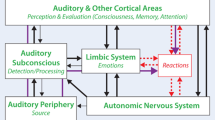Abstract
Tinnitus retraining therapy involves masking of tinnitus at sound perception level in combination with structured counselling sessions. To assess efficacy of Tinnitus retraining therapy (TRT) in Patients of Tinnitus with Sensori Neural Hearing loss. Prospective study was carried out on patients who presented with Tinnitus in ENT OPD from December 2015 to December 2016. Severity of tinnitus was documented using Tinnitus handicap inventory scale. Response to tinnitus is evaluated at the end of 3 months. In our study 57 patients in age group 21–78 years were selected and Tinnitus retraining therapy was administered. Most of patients had moderate (75.43%) perception of tinnitus before initiation of therapy. After completion of therapy tinnitus completely disappeared in 34 (59.65%) patients. Improvement in Tinnitus perception was observed in total of 49 (85.96%) patients. There was no improvement in Tinnitus perception in 8 (14.03%) patients. TRT aims in reducing the tinnitus perception by inducing habituation of tinnitus-induced reactions allowing patients to achieve control over their tinnitus, live a normal life, and participate in everyday activities.
Similar content being viewed by others
References
Kleinjung T, Eichhammer P, Langguth B, Jacob P, Marienhagen J, Hajak G, Wolf SR, Strutz J (2005) Long-term effects of repetitive transcranial magnetic stimulation (rTMS) in patients with chronic tinnitus. Otolaryngol Head Neck Surg 132(4):566–569
Davies J, Gander PE, Andrews M, Hall DA (2014) Auditory network connectivity in tinnitus patients: a resting-state fMRI study. Int J Audiol 53(3):192–198
Langguth B, Elgoyhen AB, De Ridder D, Salvi RJ (2013) Positive spontaneous auditory phenomena: tinnitus. Disord Peripher Central Audit Process 1 10:345
Searchfield GD, Magnusson J, Shakes G, Biesinger E, Kong O (2011) Counseling and psycho-education for tinnitus management. In: Textbook of tinnitus. Springer, New York, pp 535–556
Cima RF, Maes IH, Joore MA, Scheyen DJ, El Refaie A, Baguley DM, Anteunis LJ, van Breukelen GJ, Vlaeyen JW (2012) Specialised treatment based on cognitive behaviour therapy versus usual care for tinnitus: a randomised controlled trial. The Lancet 379(9830):1951–1959
Henry JA, Jastreboff MM, Jastreboff PJ, Schechter MA, Fausti SA (2003) Guide to conducting tinnitus retraining therapy initial and follow-up interviews. J Rehabil Res Dev 40(2):157
Surr RK, Kolb JA, Cord MT, Garrus NP (1999) Tinnitus handicap inventory (THI) as a hearing aid outcome measure. J Am Acad Audiol 1(10):489–495
Henry JA, Dennis KC, Schechter MA (2005) General review of tinnitus: prevalence, mechanisms, effects, and management. J Speech Lang Hear Res 48(5):1204–1235
Bennett M, Kertesz T, Yeung P (2005) Hyperbaric oxygen therapy for idiopathic sudden sensorineural hearing loss and tinnitus: a systematic review of randomized controlled trials. J Laryngol Otol 119(10):791–798
Westin VZ, Schulin M, Hesser H, Karlsson M, Noe RZ, Olofsson U, Stalby M, Wisung G, Andersson G (2011) Acceptance and commitment therapy versus tinnitus retraining therapy in the treatment of tinnitus: a randomised controlled trial. Behav Res Ther 49(11):737–747
Zhang J (2013) Auditory cortex stimulation to suppress tinnitus: mechanisms and strategies. Hear Res 31(295):38–57
Hoare DJ, Searchfield GD, El Refaie A, Henry JA (2014) Sound therapy for tinnitus management: practicable options. J Am Acad Audiol 25(1):62–75
Landgrebe M, Zeman F, Koller M, Eberl Y, Mohr M, Reiter J, Staudinger S, Hajak G, Langguth B (2010) The Tinnitus Research Initiative (TRI) database: a new approach for delineation of tinnitus subtypes and generation of predictors for treatment outcome. BMC Med Inform Decis Mak 10(1):42
Author information
Authors and Affiliations
Corresponding author
Ethics declarations
Conflict of interest
The authors have no conflicts of interest to disclose.
Ethical approval
This study was approved by the institutional Review Board of the Narayana Medical College, Nellore.
Informed consent
Our research involved human participants who had obtained informed consent.
Rights and permissions
About this article
Cite this article
Reddy, K.V.K., Chaitanya, V.K. & Babu, G.R. Efficacy of Tinnitus Retraining Therapy, A Modish Management of Tinnitus: Our Experience. Indian J Otolaryngol Head Neck Surg 71, 95–98 (2019). https://doi.org/10.1007/s12070-018-1392-6
Received:
Accepted:
Published:
Issue Date:
DOI: https://doi.org/10.1007/s12070-018-1392-6




